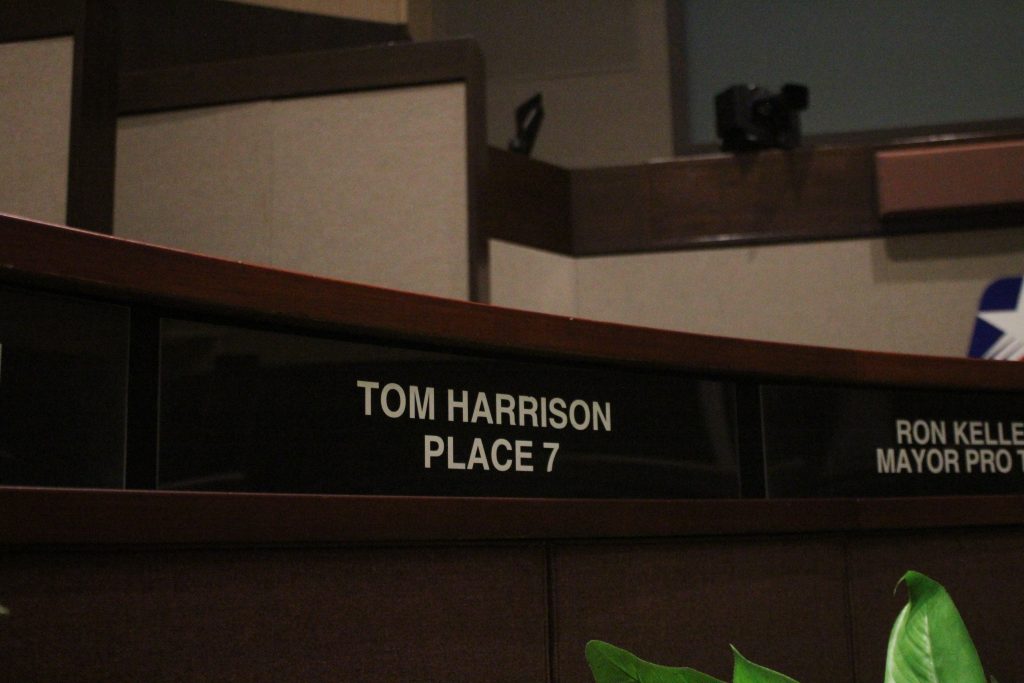A Plano City Council member is suing the city and city secretary to stop a recall election to end his term early in November due to an Islamophobic Facebook post he shared in February.
Tom Harrison filed suit against the city on June 19 in the Fifth Court of Appeals in Dallas County, arguing that the city secretary, Lisa Henderson, violated the city charter by basing the number of signatures needed for a recall election off of Harrison’s election year, 2015, instead of the last election. The issue comes from ambiguity in the charter about whether the number of petition signatures required to trigger a recall election is based off the number of voters in the previous election or the election that put the official in office. Harrison’s lawyer argued that the approximate 4,400 signatures that were submitted by the group Our Plano, One Plano is short of the 8,163 they believe is required when basing the number off the most recent election.
Taha Ahmed, the accommodations chair of UTD’s Muslim Students Association, said the news of Harrison’s post didn’t shock him.
“I wasn’t really surprised since we’ve seen again and again more people be comfortable with showing how they really feel about Muslims in particular,” Ahmed said. “It was a little sad to see that it was really close to home though.”
The post Harrison shared on Feb. 14 from the group titled “Joined Hands Across America For Trump” read, “Share if you think Trump should ban Islam in American schools,” and cycled through various photos, including a young girl wearing a hijab. Harrison’s Facebook profile also contains several other controversial posts, including one saying that Democrats support Muslim slave owners. The day after Harrison shared the Islamophobic post, Mayor Harry LaRosiliere called for his removal and public censure by the city council. At a Feb. 18 meeting, the council voted 7-1 to censure Harrison.
At that same meeting, Harrison said he would not step down, provoking both boos and applause from the assembled crowd. Ahmed said the best course of action would for Harrison to step down.
“I do believe he has to step down because it’s just not fair to show that sort of disrespect to a certain group of individuals, especially if you’re serving that large segment of the community,” Ahmed said.
Harrison posted an apology and explanation on Facebook, saying he is not “anti-Muslim,” and that the post was meant to show that Christianity is not the only religion targeted for exclusion in public schools. At the Feb. 18 city council meeting, he defended himself after every other council member admonished him for his actions.
“I want to assure the citizens of Plano I am not xenophobic. I am not a bigot. I am not a racist,” Harrison said.

Later in an interview with The Mercury, Harrison gave several reasons for the Islamophobic post. Harrison said the post was meant to be in the context of a conversation with a friend about religious liberties, and not realizing the post would be public. He also said that his Facebook account was hacked, and equated his situation with that of conservative commentator Steven Crowder, accused in March by a UT Arlington professor of being a neo-Nazi.
Harrison also offered explanations for several other Facebook posts that were inflammatory. He initially said all of the controversial posts, with the exception of the one about Islam in schools, were accidental, but later said that some posts were placed there by other individuals.
“There’s one page she (his media consultant) said, ‘this cannot physically be on a (Facebook) page because it is larger than an 8”1/2 by 11” piece of paper.’ So they cut it off and they cut it across a seam and they pasted it on there and they made a copy of it,” Harrison said to show that he could not have shared one of the inflammatory posts.
Harrison accused LaRosiliere of targeting him with bad publicity because of his opposition to several apartment developments in the city, including Legacy West and Envision Oak Point. He said LaRosiliere’s opposition to these measures led to a perception that Plano is unfriendly to developers, leading LaRosiliere to bring the Facebook post to the public’s attention. Harrison blamed the controversy on Agenda 21, a conspiracy theory based around a set of guidelines adopted by the United Nations in 1992 for sustainable development in the 21st century.
Harrison’s suit against the city was further complicated when the city’s attorney, Paige Mims, found a second charter in the city’s archives. The copy dates from the same day in 1961 on which the original charter was ratified, and according to Mims, is equally valid. The difference between the two charters is minute but possibly important to the case. In the version of the charter that has been in use for the last 57 years, the section regarding recall elections states that 30 percent of the number of votes “at the regular municipal election” is the minimum number of signatures required, while the newly found version says the “last regular municipal election.”
To determine which charter is legal, the city filed a lawsuit in the district court, but Harrison’s lawyer, Art Martinez de Vara, said it could just be a way to delay a resolution to Harrison’s lawsuit until after the recall election.
Leave a Reply